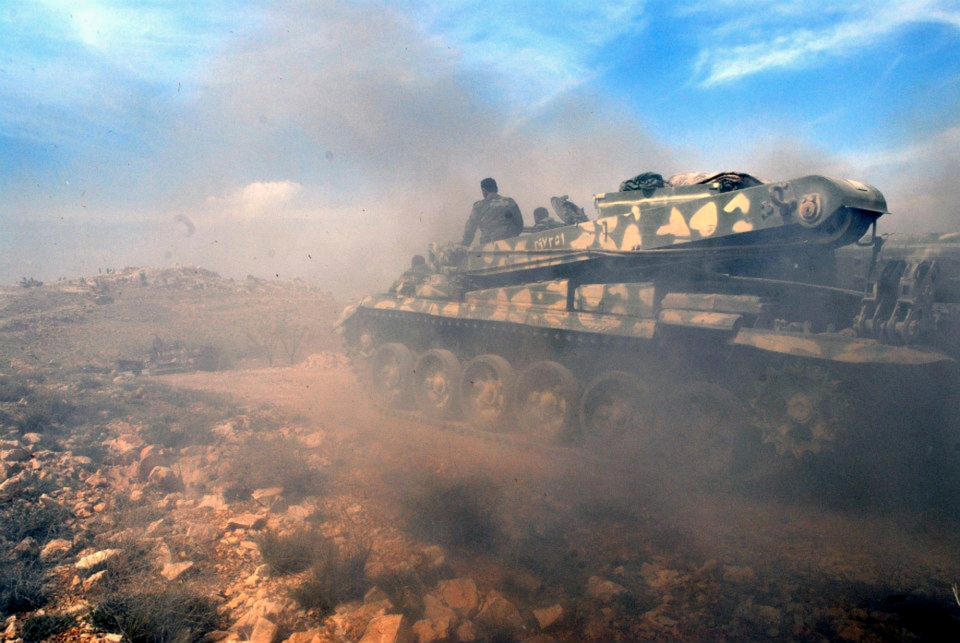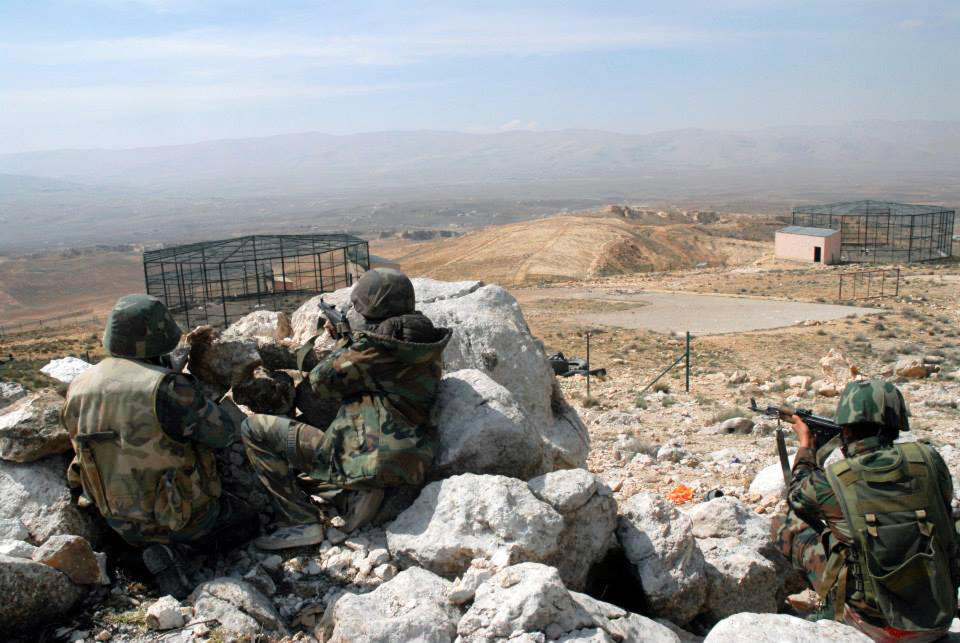Syrian forces take 3 villages near Lebanese border
MAALOULA, Syria (AP) — Syrian government troops seized at least three border communities, including an ancient Christian hamlet, north of Damascus on Monday, state media and activists said, in a dramatic one-day sweep that suggests rebel strongholds along the Lebanese frontier are near total collapse.
The capture of Sarkha, Maaloula and Jibbeh was the fastest series of army successes against rebels in the Qalamoun region along the border with Lebanon since the government launched an offensive in the mountainous terrain in November. The government gains have allowed the military, backed by the Lebanese Shiite militant Hezbollah group, to squeeze a key rebel supply route that has long funneled weapons, supplies and fighters to rural Damascus.
Syria's state news agency said forces loyal to President Bashar Assad captured Sarkha early Monday before also sweeping rebels out of Maaloula, an ancient Christian village set into the rocky hills. Hours later, a Syrian military commander said troops also seized the nearby town of Jibbeh.
The seizure of the border communities came a day after government troops backed by Hezbollah fighters captured the nearby town of Rankous.
By Monday afternoon, only the towns of Arsal al-Ward, Hawsh Arab and Jbaadin remained in rebel hands, said the commander who spoke to an Associated Press reporter on a government-led tour of the area. He spoke on condition of anonymity in line with regulations.
A pro-rebel activist in Qalamoun who uses the name Amer confirmed the military had taken the communities, but said Jibbeh and Jbaadin had never been in opposition hands. The Britain-based Syrian Observatory for Human Rights confirmed that both communities had never been under rebel control.
Instead, it appeared that pro-government fighters had pre-emptively seized the towns to ensure rebels would not take them.
Now in its fourth year, Syria's civil war has killed more than 150,000 people and taken on deep sectarian overtones.
The armed opposition is dominated by Syria's Sunni Muslim majority. Islamic extremists, including foreign fighters and Syrian rebels who have taken up hard-line al-Qaida-style ideologies, have taken on an increasingly prominent role among the opposition, dampening the West's support for the rebellion to overthrow Assad.
The government, meanwhile, has drawn heavily on the president's heterodox Alawite sect for support. Christians and other minorities have largely either stayed on the sidelines or thrown their support behind the government.
Against that backdrop, Maaloula, located some 40 miles (60 kilometers) northeast of the capital and home to a large Christian population, serves as an important symbolic prize for the government.
It has changed hands several times in the past several months. Rebels seized the village — where some residents still speak a version of Aramaic, the language of biblical times believed to have been used by Jesus — in early December.
Those fighters included gunmen from the al-Qaida-affiliated Nusra Front, who abducted more than a dozen Greek Orthodox nuns from their convent during the fighting, fueling fears that hard-line Muslims were targeting Christians. The nuns were released unharmed in March. In exchange, the Syrian government reportedly released dozens of women from prison.
During the government-led tour of the village Monday, the toll of the past few months on Maaloula was clear, including to Christian sites. It was not clear, however, whether the wreckage to Christian buildings was intentional, or whether the ancient sites were merely caught in the crossfire.
The church bell and cross were missing from the Mar Sarkis convent, while icons of saints, books papers and glass littered the floors. The convent is located below the hilltop Safir Hotel, which served as one of the main rebel positions in Maaloula for months. They also were holed up in nearby caves.
The hotel itself was completely destroyed, with holes gouged through the walls and blackened floors. Syrian soldiers hoisted the national flag atop the shattered building. Inside, children's toys, debris and electricity cables were strewn about the rubble.
Still, rebels from Qalamoun said that despite the loss of their strongholds, the area's rugged geography meant that Syrian forces could not entirely cut opposition supply lines that extended from Lebanon's eastern Bekaa Valley, particularly from the Sunni border town of Arsal, to rural Damascus.
"Arsal (begins) the biggest route to smuggle medicine and weapons and people into Syria, and this route is still working," said Ammar al-Hassan, a rural Damascus activist. "The regime and Hezbollah can't touch it."
Also Monday, in the southern Syrian province of Daraa, a government airstrike killed at least eight women and children in the town of Kaheel, according to the Observatory and another activist group, the Local Coordination Committees.
Both groups said the air raid hit a medical clinic. The LCC said children were being given polio vaccinations at the time. Observatory director Rami Abdurrahman said one of the women killed was a doctor. It was not immediately clear whether there was fighting in the vicinity.
___
Hadid reported from Beirut.



